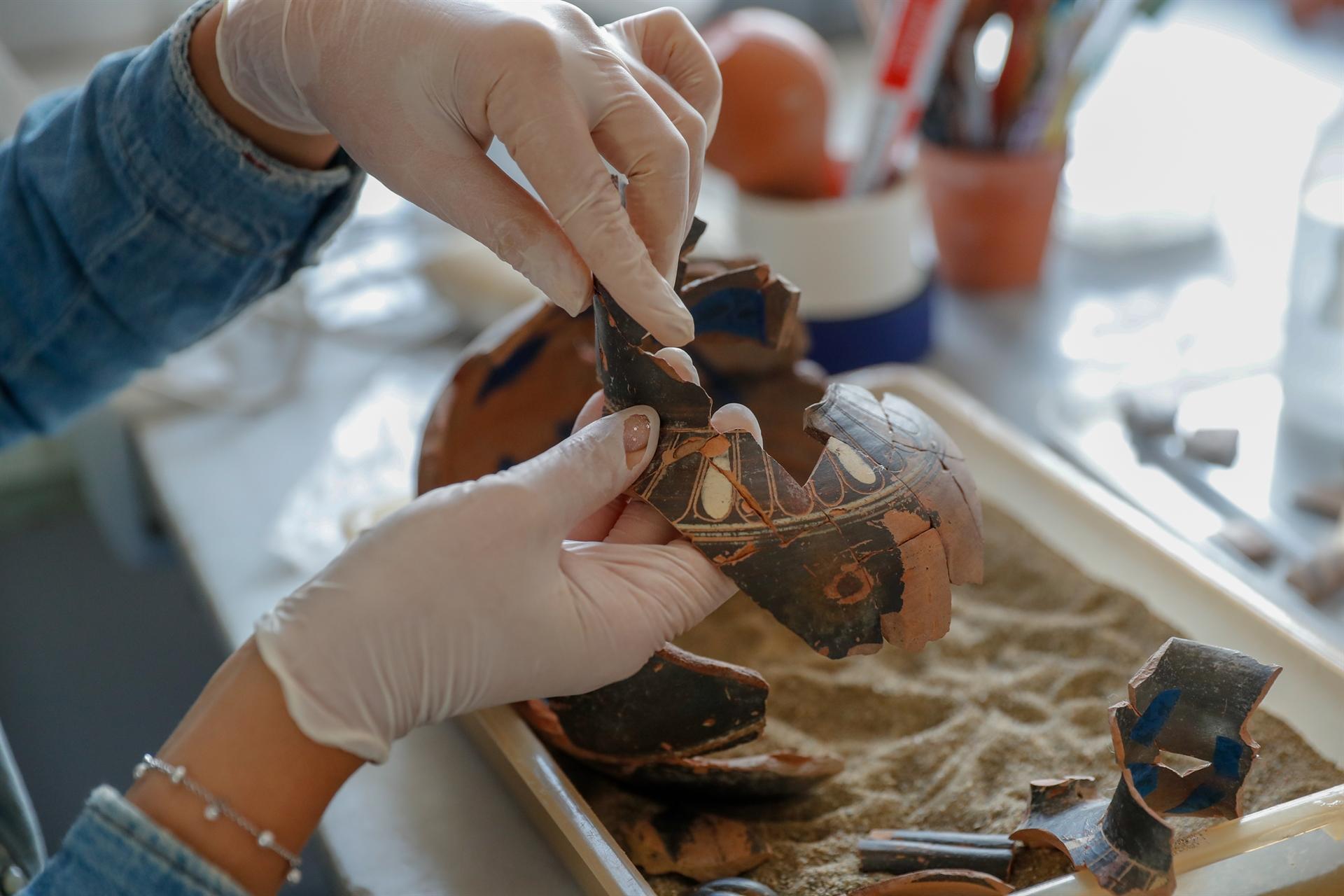
Archaeological excavations are being carried out at Bayraklı Mound (Old Smyrna), which has a history of nearly 5,000 years, to search for traces of wars and other disasters in the city that bore a strategic position at the time.
Important finds have been unearthed in the archaeological excavations that started in 1948 and continued at intervals in the mound in the Bayraklı district.
Excavations are being carried out since 2014 by a team of 70 people headed by Professor Cumhur Tanrıver, a lecturer at Ege University’s (EU) Department of Ancient Languages and Cultures.
Speaking to the state-run Anadolu Agency, Tanrıver said that the first city structure in İzmir was seen 3,000 years ago with the name “Smyrna” in the area that is now within the borders of Bayraklı.
Stressing that the finds unearthed during the excavations reveal that Smyrna had been a center of commercial and political activities in the region for 300 centuries, starting from the seventh century B.C., Tanrıver said that for this reason, the region was the scene of many attacks and destructions.
Noting that they have been trying to learn the city’s defense system in recent years, Tanrıver said: “The ancient city of Smyrna, which was located in a strategically important position, was undoubtedly the main target of different powers who wanted to seize the region. The most important factor in reaching this conclusion is that the city was surrounded by a strong fortification wall since the ninth century B.C. We uncovered a very large and well-preserved tower right next to the entrance to the city, and we had the opportunity to explore it better in the last two years. Now we have made its drawings. We are trying to create a project. If we partially restore it and make it 3D, this will be an important element to understand İzmir and Smyrna better.”
Tanriver pointed out that the city wall in the mound is only found in contemporary Late Hittite settlements.

King Alyattes entered Smyrna by hills Lydians made
Stating that there are different assumptions about whom the city wall was built against, Tanrıver said that the research revealed that the city wall was destroyed and rebuilt three times in history.
Stating that the people of the region built the third wall against the growing Lydian Kingdom in the seventh century B.C., Tanrıver said: “Ancient sources say that the Lydian King Gyges was unable to conquer Smyrna. About 50 years later, due to the threat of King Alyattes, the people of Smyrna fearfully surrounded the whole city with a new wall, much stronger than the previous ones, in a very short time. But they were defeated. The Lydians entered the city not from the walls, but by making a hill right behind it. They destroyed the city and walls. We unearth the traces of the King Alyattes attack, as well as other disasters that destroyed the city. After these attacks, the city was ruled by the Lydians for 50 years. Then a larger power from the east, the Persians, seized Sardis in 545 and Smyrna at the same time. Here we find traces of a war at that time. Since there was no wall, they easily seized the city. In other words, the troubles caused by the strategic importance of İzmir always continued.”
Noting that they reached the Early Bronze Age layers right in the west of the settlement, Tanrıver said that last year’s excavations also uncovered a treasure containing silver jewelry from the Early Bronze Age in a vessel.